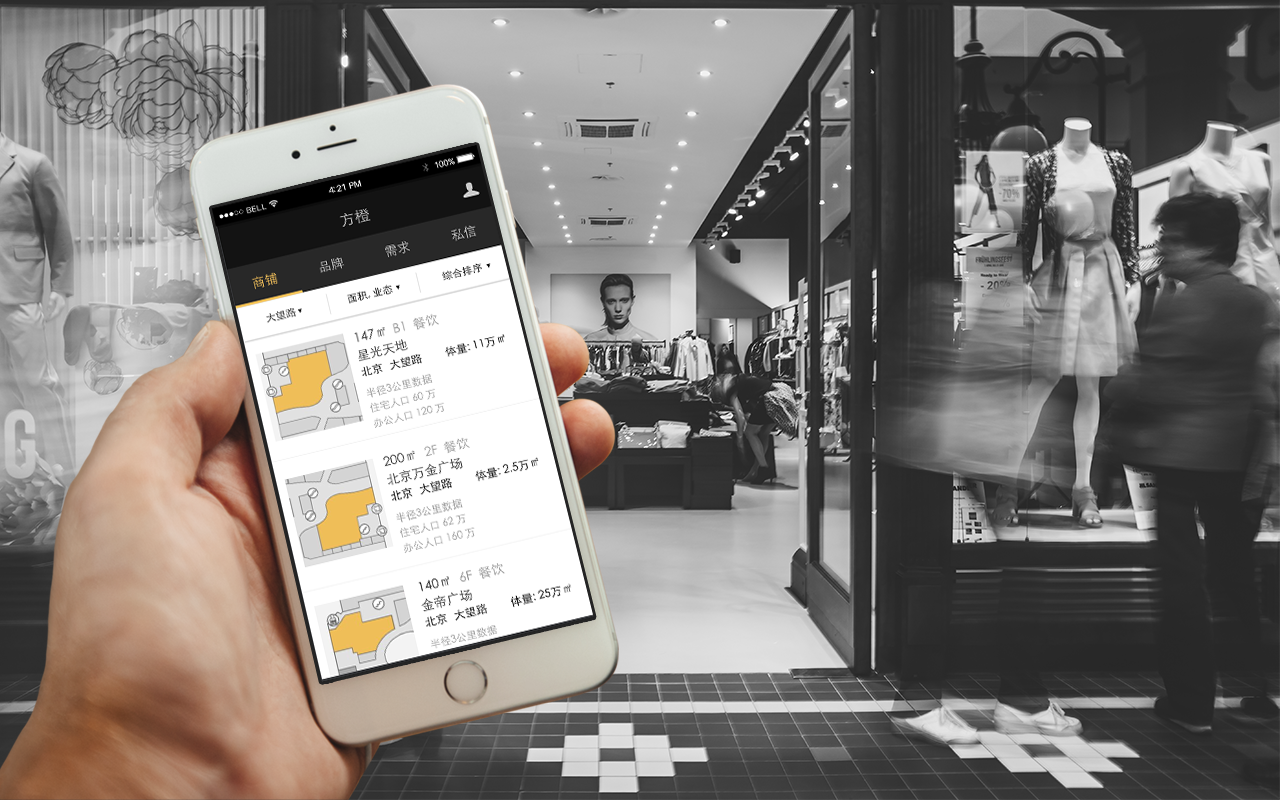//Fangcheng
Product design for online commercial real estate platform
Project description
- Project type: Product design and UI design (Wechat Web APP)
- Date: Nov 2014 - Aug 2015
- Responsibility: UI/UX designer
About Fangcheng
In China, the commercial real estate market kept explosive growing, and the number of shopping malls doubled in just 2 years (2012-2014). Meanwhile, the homogenization problem of shopping malls was getting worse and the whole market was involved in an unhealthy competition. Fangcheng would like to build the first online commercial real estate platform. Supported with data mining, Fangcheng helps brands and shopping malls to match each other.
Stakeholders and requirements
The biggest difficulty in this project was understanding the interest relationship between stakeholders. The product design team interviewed practitioners in the market and identified three typical business roles, the first party (recruitors, representing the shopping malls), the second party (lessee, representing their own brands), and the third party (intermediaries and agencies).
By analyzing their requiremnts in a holistic view, the product design team identified that solving the information asymmetry problem would be the key to improve the industry. However, the traditional grey deals and benefits behind were big obstacles Fangcheng would face.
Why Wechat Web APP
According to the user research, our team also discovered that most of our target users would not use computer as their working tool. Instead, they preferred traditional communication and business methods. Besides, over half of their working time were spent out of doors (on-the-spot visits, business negotiation, commuting, etc.), especially for the second party. Wechat had become practitioners' important information source in their job. Hence, we switched our platform from PC web base to Wechat Web APP base. Although the interation had more limitation and the difficulty of UI design was increased, the scenario became much closer to the real practice for users.
Rapid iteration
As the first online commercial real estate platform, both Fangcheng and users had no idea what the product should be. The product team needed to verified the design and iteration rapidly in order to make a right design. Prototype and MVP were used. In each iteration cycle, we collected user feedback and the usage data and quickly responded. In this way, we found out what kind of information the users needed and how to present in a appropriate way. We also designed the communication module and requirement sharing module to reduce the gap between each party of stakeholders. Meanwhile, it was necessary to reduce the damage of interests of traditional grey deals to an certain level, so that the practitioners can accept the product. The requirement post module was a good example. The information listed in the post were iteratively optimized according to user feedback for several times.
Outcomes
Before we finish the project in Aug 2015, Fangcheng had already collected, digested and visualized the commercial real estate market data for Beijing, Shanghai, Guangzhou and Nanjing, which had contained over 10,000 brands and 500 shopping centers. In Beijing, over 70% practitioners registered and used the platform as their working tool.


